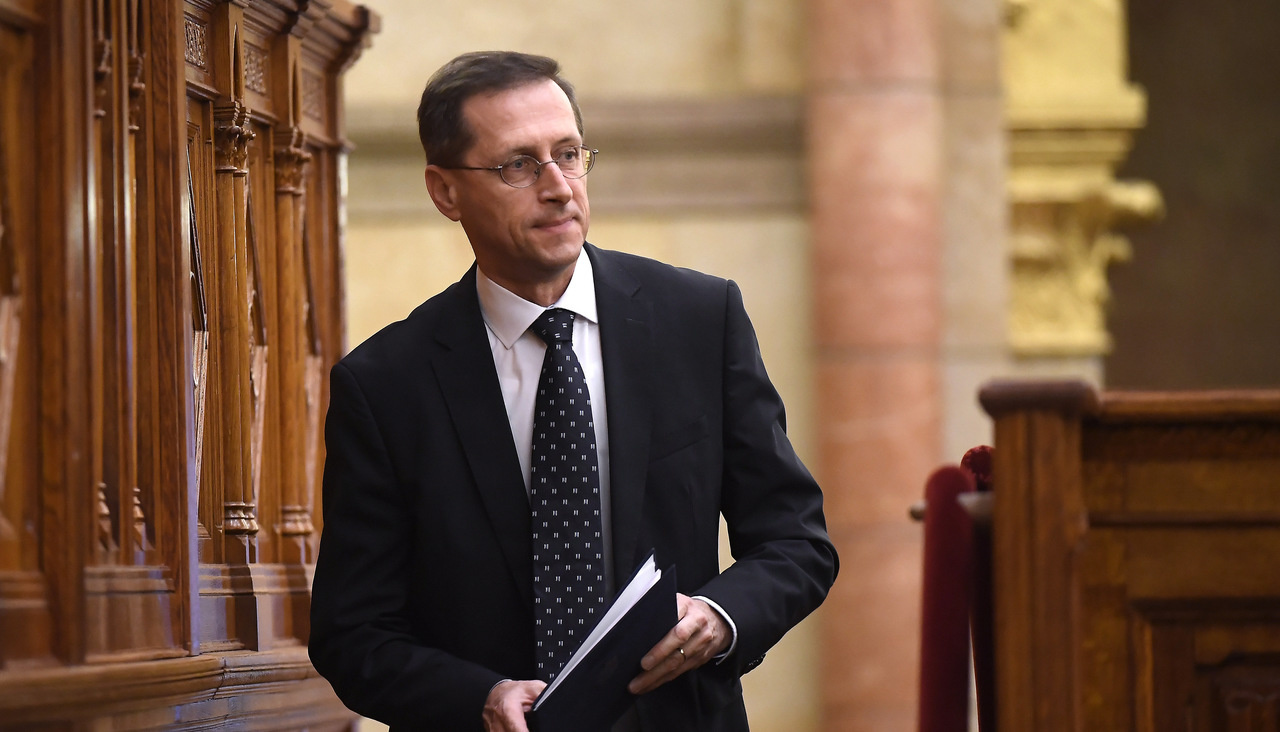Hungary’s 2021 budget: Finance minister expects healthy economic growth of 4.8 pc next year

The government expects healthy economic growth of 4.8 percent next year and moderate inflation of 3 percent, Finance Minister Mihály Varga told lawmakers in remarks opening the budget debate on Wednesday.
The deficit target is 2.9 percent of GDP, just below the Maastricht threshold, while reserves built into the budget draft provide a ‘safety net’ of more than half a percent of national income, he said. Also, the public debt is set to decline further, the minister added.
Next year’s budget, Varga said, contains a health insurance and epidemiological fund as well as an economic protection fund. It is also geared towards the protection of families, supporting economic developments and guaranteeing Hungary’s security, he added.
The head of the State Audit Office (ÁSZ) told lawmakers in parliament that
the 2021 budget bill was suitable for relaunching the Hungarian economy.
László Domokos said the macroeconomic forecast contained in the bill was a good basis for planning the budget, adding that it complied with the rule on reducing the public debt and other legal requirements.
He said Hungary’s economy and public finances had been healthy when the coronavirus epidemic emerged, so activity was likely to resume in most sectors other than those deeply integrated into the world economy such as global trade and tourism.
Domokos said
Hungary’s economy would perform better in 2021 than in 2019, but it was unlikely to do as well as originally planned.
Outlining the budget numbers, Varga said almost 2,295 billion forints (EUR 6.6bn) will be available for family support, up 67 billion year on year. Pension benefits, at 3,907 billion forints, will be worth 327 billion more than this year, he said, adding that the money for phasing in the 13-month pension was also available.
Education spending will amount to 2,229 billion in 2021, up by 78 billion, while 2,115 billion will go towards health care, up by 156 billion.
Fully 704 billion forints is being channelled into public security, 154 billion more than this year, while 953 billion will be spent on developments in law enforcement, 93 billion more than in 2020.
The budget for social security and welfare services such as sickness and jobless benefits will amount to 6,500 billion forints, an annual increase of 541 billion.
Whereas the government is not considering a basic income, he said, it is providing more money for traditional welfare benefits.
In 2021, the fund for job-preservation and job-creation schemes will amount to more than 2,550 billion forints, skewed towards boosting priority sectors and ensuring the liquidity of businesses.
The health insurance and epidemic prevention fund contains 3,000 billion forints.
When it comes to European Union funding, the budget has the capacity to pre-finance projects in 2021, Varga said.
Addressing the issue of local council funding, Varga said they would receive more than 857 billion forints in 2021, 118 billion more than this year. They will have 3,000 billion forints at their disposal next year without resorting to credit, he said. Also, local councils will have access to a 200 billion forint credit line for investments. Further, the Modern Cities and Villages scheme will continue and EU money will also be used for local council investments.
Referring to certain revenues diverted from local councils for epidemic-related spending, Varga said the principle of the measure was solidarity. Richer municipalities should bear a higher cost burden compared with poorer ones. The government, he insisted, was not withdrawing funding from localities, adding that the leadership of Budapest was refusing to take part in solidarity.
Varga said it was clear from the 2021 budget numbers that the government was not handling the economic crisis through austerity but by providing financial support.
Source: MTI

